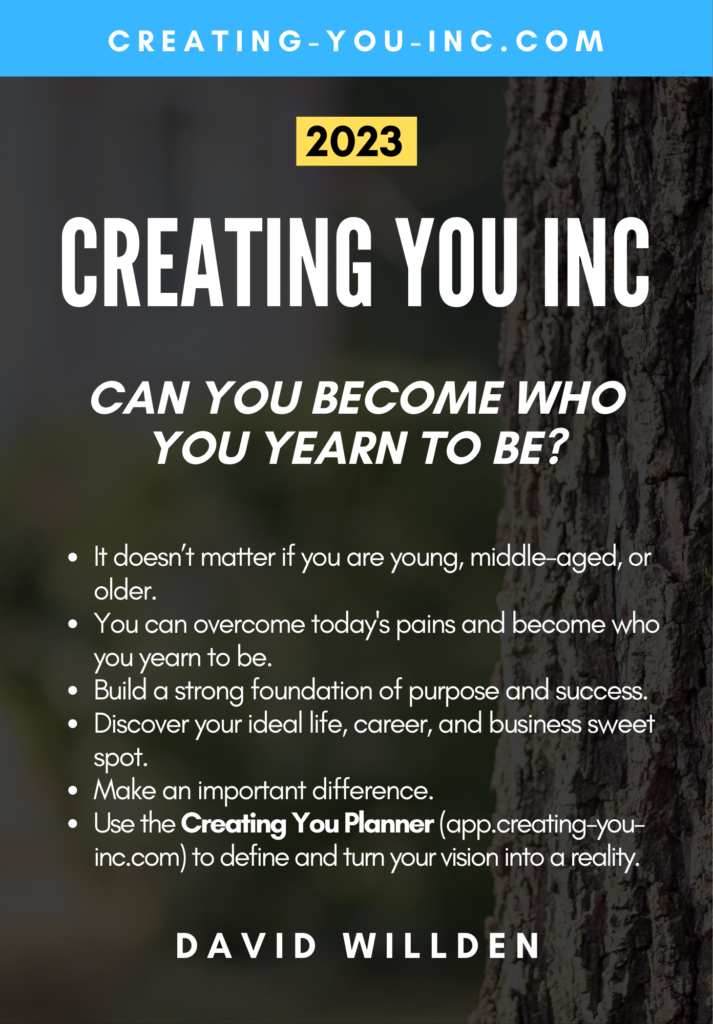Best Books to Help You Discover Your Purpose and Passion
It is disappointing to review books identified by many as the best books on finding your passion and purpose. It seems that too many have been lured and entrapped by:
Your journey to discover, define, and focus on your passion and purpose is too important. You want to learn from the best books and seek inspiration during this process.
Let me review with you the best books I have found to help you discover and focus on your purpose and passion. These are books that provide deep insights into truths.
As a Man Thinketh
by James Allen
This book is profound! It is a short book but you will want to review it many times and ponder upon it. James Allen emphasizes the power of thought.
Excerpts from the book::
- As he thinks, so he is; as he continues to think, so he remains.
- A man is literally what he thinks, his character being the complete sum of all his thoughts.
- A person is limited only by the thoughts that he chooses.
- A noble and Godlike character is not a thing of favour or chance, but is the natural result of continued effort in right thinking, the effect of long-cherished association with Godlike thoughts.
- A man's mind may be likened to a garden, which may be intelligently cultivated or allowed to run wild; but whether cultivated or neglected, it must, and will, bring forth. If no useful seeds are put into it, then an abundance of useless weed seeds will fall therein, and will continue to produce their kind.
- Man is buffeted by circumstances so long as he believes himself to be the creature of outside conditions, but when he realizes that he is a creative power, and that he may command the hidden soil and seeds of his being out of which circumstances grow, he then becomes the rightful master of himself.
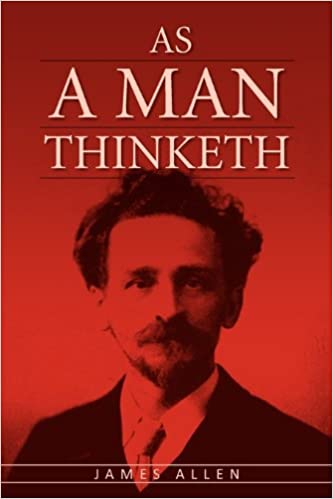
Man’s Search for Meaning
by Viktor Frankl
Viktor Frankl chronicled his experiences as a prisoner in Nazi concentration camps during World War II. He was an Austrian neurologist and psychiatrist. He was one of the very few who survived. He was in three different concentration camps and experienced unimaginable atrocities.
Viktor believed strongly that finding meaning in life is the primary, most powerful motivating, and driving force in humans.
This was in contrast to the prevailing belief advocated by Freud and Adler that the pursuit of pleasure and power were the driving forces of people.
In Man’s Search for Meaning, Viktor relates his experiences in the Nazi concentration camps. The natural assumption was the only ones who could survive the atrocities were the young, strong, and healthy. That wasn’t the case. Those that survived had found deep meaning in their lives.
Excerpts from the book:
- Everything can be taken from a man but one thing: the last of the human freedoms—to choose one’s attitude in any given set of circumstances, to choose one’s own way.
- Between stimulus and response, there is a space. In that space is our power to choose our response. In our response lies our growth and our freedom.
- When we are no longer able to change a situation, we are challenged to change ourselves.
- The more one forgets himself—by giving himself to a cause to serve or another person to love—the more human he is and the more he actualizes himself.
- Don’t aim at success. The more you aim at it and make it a target, the more you are going to miss it.
- For success, like happiness, cannot be pursued; it must ensue, and it only does so as the unintended side effect of one’s personal dedication to a cause greater than oneself or as the by-product of one’s surrender to a person other than oneself.
- I want you to listen to what your conscience commands you to do and go on to carry it out to the best of your knowledge. Then you will live to see that in the long-run—in the long-run, I say!—success will follow you precisely because you had forgotten to think about it.
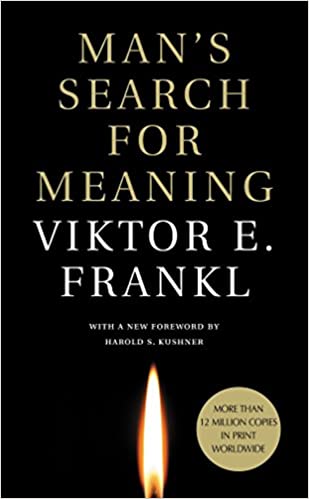
Mindset: The New Psychology of Success
by Dr. Carol Dweck
After decades of studying the behavior of thousands of children, Dr. Carol Dweck and her team described what best helps us to succeed.
The key is to understand how we think about our talents and abilities.
Those that believe that their abilities and the abilities of others are fixed are far less likely to flourish. People with this fixed mindset allow failures to define them permanently.
They tend to give up or try to protect themselves by hiding their deficiencies, blaming, or offering excuses.
Those that genuinely believe that they grow based on effort and persistence, experience significantly greater success in every area of human endeavor.
They have a growth mindset and are more motivated to put in extra time and effort, and that leads to higher growth in all areas.
Excerpts from the book:
- We like to think of our champions and idols as superheroes who were born different from us.
- We don’t like to think of them as relatively ordinary people who made themselves extraordinary.
- Picture your brain forming new connections as you meet the challenge and learn. Keep on going.
- I believe ability can get you to the top,” says coach John Wooden, “but it takes character to keep you there.… It’s so easy to … begin thinking you can just ‘turn it on’ automatically, without proper preparation. It takes real character to keep working as hard or even harder once you’re there. When you read about an athlete or team that wins over and over and over, remind yourself, ‘More than ability, they have character.'
- True self-confidence is “the courage to be open—to welcome change and new ideas regardless of their source.” Real self-confidence is not reflected in a title, an expensive suit, a fancy car, or a series of acquisitions. It is reflected in your mindset: your readiness to grow.
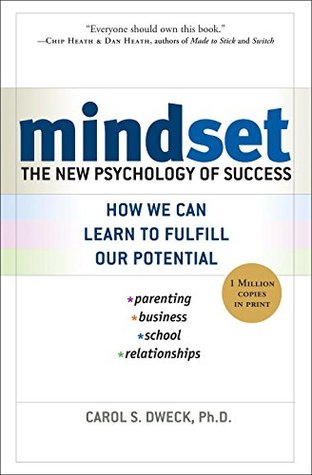
The 7 Habits of Highly Effective People
by Stephen R. Covey
Stephen R. Covey explains how many individuals who have achieved significant outward success struggle with an inner need for peace. Before the 1920s, society encouraged people to develop key character traits such as integrity, humility, courage.
Much of what has been taught since the 1920s has focused on public image, how you dress, a superficial positive attitude, and various techniques to get people to behave the way we want them to.
People began to look for quick fixes – that didn’t address the real problems and didn’t create a foundation for meaningful success. The appetite for quick fixes continues to grow. Dishonesty in marketing has become commonplace.
Stephen emphasizes that lasting success is only possible if you live according to natural laws and core principles. He summarized these principles of success in the book. They include:
Those that genuinely believe that they grow based on effort and persistence, experience significantly greater success in every area of human endeavor.
They have a growth mindset and are more motivated to put in extra time and effort, and that leads to higher growth in all areas.
Excerpts from the book:
- Be proactive: To be effective we must be proactive. To be proactive, we must take responsibility for our choices and lives. Reactive people are reactive and believe the world is happening to them.
- Begin with the end in mind: This is to envision a clear destination. We can use our imagination to develop a vision of what we want to become and use our conscience to decide what will guide us.
- Put first things first: This involves prioritizing our actions on what is most important and not what is most urgent.
- Think win/win: To establish effective relationships we need to create win/win situations.
- Seek first to understand then be understood: Before we can be effective with others, we need to deeply understand them. Our temptation is to tell and not to listen with empathy and understanding. .
- Synergize: When we value each other and tap into each other’s experiences, insights, and ideas we accelerate growth and success for everyone.
- Sharpen the saw: To be effective, we need to take time to renew ourselves physically, spiritually, mentally, and socially.
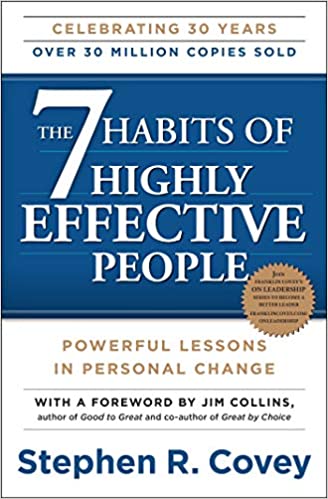
Peak: Secrets from the New Science of Expertise
by Anders Ericsson and Robert Pool
Anders Ericsson has made a career studying top performers in countless areas.
"I have delved in the nuts of bolts of what they do and how they do it. I have observed, interviewed, and tested them. I have explored the psychology, the physiology, and the neuroanatomy of these extraordinary people. And over time I’ve come to understand that, yes, these people do have an extraordinary gift, which lies at the heart of their capabilities. But it is not the gift that people usually assume it to be, and it is even more powerful than we imagine. Most importantly, it is a gift that every one of us is born with and can, with the right approach, take advantage of.”
Excerpts from the book:
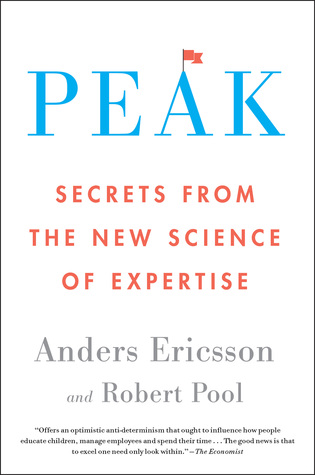
The 8th Habit: Find Your Voice and Inspiring Others to Find Theirs
by Stephen R. Covey
As the title suggests, the book focuses on finding your voice and inspiring others to find theirs.
Finding your voice: To find your voice means to engage in work that genuinely taps your talents and fuels your passion. We have the freedom to choose. Our past, genes, and how others have treated us influence us, but they don’t have to determine us. To succeed you want to be driven by passion, a vision, discipline, and conscience.
Inspire others to find their voice: The key is to believe more in the ability of others than they do in themselves. This will help others to believe in themselves and to find their own "voice."
Excerpts from the book:
- To find your voice, you need to examine your natural talent, what you absolutely love to do, what really interests you. And you must listen to the confirming inner voice of your conscience that tells you what is the right thing to do.
- When you have found your voice, you can begin inspiring others to do the same – this is really about leadership. Great leaders have always inspired people to be self-aware, to find themselves and to find their voice – that is the essence of greatness. People and organizations who have truly found their voices go on to become great.
- People are working harder than ever, but because they lack clarity and vision, they aren’t getting very far. They, in essence, are pushing a rope...with all of their might.
- No matter how long we’ve walked life’s pathway to mediocrity, we can always choose to switch paths. Always. It’s never too late. We can find our voice.
- When all you want is a person's body and you don't really want their mind, heart or spirit, you have reduced a person to a thing.
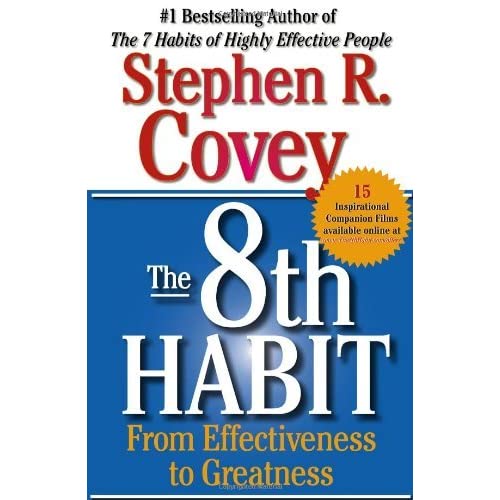
The Brain that Changes Itself
by Norman Doidge, M.D.
His book helps to reinforce with profound scientific data what James Allen taught. You will begin to understand the power of your thoughts and brain. Your potential to accomplish great things is much greater than you think.
Dr. Norman Doidge has been a key thought leader, instigator, and popularizer of the science of neuroplasticity. He is also a master at communicating and helping the public to understand neuroplasticity. He earned a medical degree from the University of Toronto and completed psychiatric and psychoanalytic training at Columbia University. He’s published two incredible New York Times bestsellers – The Brain that Changes Itself and The Brain’s Way of Healing.
Excerpts from the book:
- The brain is a far more open system than we ever imagined, and nature has gone very far to help us perceive and take in the world around us. It has given us a brain that survives in a changing world by changing itself.
- One reason we can change our brains simply by imagining is that, from a neuroscientific point of view, imagining an act and doing it are not as different as they sound. When people close their eyes and visualize a simple object, such as the letter a, the primary visual cortex lights up, just as it would if the subjects were actually looking at the letter a. Brain scans show that in action and imagination many of the same parts of the brain are activated. That is why visualizing can improve performance.
- Most people assume that our genes shape us—our behavior and our brain anatomy. Kandel’s work shows that when we learn our minds also, affect which genes in our neurons are transcribed. Thus we can shape our genes, which in turn shape our brain’s microscopic anatomy.
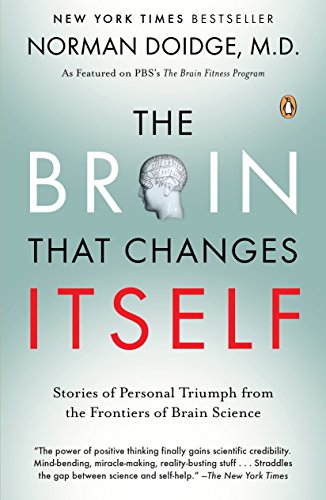
Creating You Inc
By David L. Willden
This hands-on guidebook enables you to learn, build, and progress toward a compelling future that you define for yourself.
- Build a Strong Foundation of Deep Purpose and Success: To be who you yearn most to become, you much first learn how to build a proper foundation. Begin today to build that foundation.
- Become the Designer and Builder of Your Future: True greatness is not a thing of favor or chance. With the right thinking, you will literally be changing the structure of your brain to enable you to achieve your vision
- Create Genuine Compassion for Yourself and Others: Understand why creating compassion for yourself is critical to your happiness and your capacity to love and serve others fully. Begin now to strengthen your love for yourself and others.
- Create Your Empowering Beliefs: Learn how to replace the self-limiting and false beliefs that make you a prisoner with new beliefs that empower and deeply strengthen you.
- Become the Master of Your Emotions: Emotions are powerful. Instead of having them control you, discover how to tap into your positive emotions, and overcome your negative ones.
- Leverage Fully the Power of Habits: Habits make us who we are. Learn about and begin to create powerful habits that open the door to your success.
- Define Your Ideal Career, Business, and Life Sweet Spot: Discover and define your ideal career, business, and life sweet spot.
- Create Your Personal Growth Plan: Create a personal growth plan that truly excites you and aligns with who you yearn most to be.
- Use the Creating You Planner: Your ability to achieve your vision can be significantly increased by utilizing the right tool or system. Learn more about the Creating You Planner tool to help you define and turn your vision into a reality
